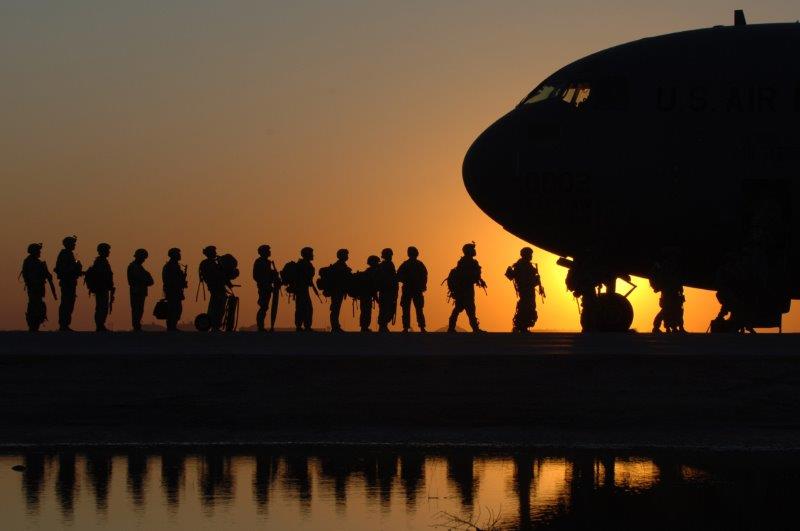Russia's invasion of Ukraine has imposed devastating losses on both sides after nearly a year of brutal warfare. Despite the costs, Russian President Vladimir Putin has avoided major escalatory actions like attacking NATO countries or using nuclear weapons. However, his prospects for victory look increasingly dim.
As the reality of stalemate takes hold, is a sudden and catastrophic collapse of Russia's military campaign in Ukraine possible? According to some experts, the answer is a surprising yes. Not only is Ukraine gearing up for bold new offensives, but precision strikes against strategic targets like Crimea could unravel Russia's position entirely.
So, a total Russian collapse is surprisingly close according to several key geopolitical issues. In this blog, we'll analyze the astonishing yet plausible scenarios under which Russia suffers a total collapse far sooner than expected. Along the way, we'll spotlight Ukraine's daring battle plans, the West's crucial role in enabling success, and the dynamics that could turn the tide for Kyiv.
While predictions are tricky with the stubborn Putin, one point comes through loud and clear - his imperial ambitions severely underestimated Ukrainian courage. Now, with the right strategy and support, Ukraine can inflict Geopolitical Strategic defeat on a teetering Russia.
Key Takeaways:
- Ukraine is openly preparing a major spring offensive aimed at severing Crimea from the Russian mainland.
- Retaking Crimea could devastate Russian morale and lead to the sudden collapse of Russia's military campaign.
- General Ben Hodges has devised an aggressive strategy to isolate then retake Crimea using precision strikes and an armored assault.
- The West must drastically increase military aid to bolster Ukraine's chances of executing this high-risk strategy.
- With Russia already overstretched, Ukraine's thrust towards Crimea could catalyze the long-anticipated Russian military implosion.
- Despite Europe's reluctance, supporting Ukraine's complete victory represents the best pathway to lasting regional peace and security.
Ukraine's Bold Offensive Plans Towards Crimea
Russia's claim on Crimea is not unlike the claim that China has on the South China Sea. As Russia mobilizes hundreds of thousands of new recruits after declaring a partial mobilization in September 2022, Ukraine is poised to launch bold counter-offensives of its own. According to Vadym Skibitsky, Ukraine's deputy military intelligence chief, these assaults will specifically target Russian-occupied Crimea next spring.
The strategic aim? To permanently sever the peninsula from the Russian mainland by force.
In his statements this week, Skibitsky reaffirmed Ukraine's commitment to liberating all seized territories - including Crimea. His reassurance reflects President Volodymyr Zelenskyy's consistent pledge that Crimea represents an integral, inalienable part of Ukraine's sovereign territory.
To recap, Russia illegally invaded and forcibly annexed Crimea back in 2014. The lightning land grab set the stage for Russia's full-scale, unprovoked invasion of Ukraine on February 24, 2022. In the nearly 12 months since, Ukraine has fought valiantly to reclaim occupied areas in the east and south using sophisticated Western-supplied weapons.
Now, all eyes turn westward to Crimea itself. In promising to "drive a wedge" separating Crimea from Russia along the contested land corridor, Ukraine plans to unleash its most ambitious counter-punch yet.
Ukraine Aims to Wedge Between Crimea and Mainland
Since illegally constructing the 12 mile-long Kerch Strait Bridge in 2018, Russia has ferried supplies, weapons, and reinforcements to sustain its grip on Crimea.
Crimea also depends on the separate land corridor that runs along the Azov Sea coastline. Together, these routes represent vulnerable choke points. By driving towards Crimea's border in a large-scale armored assault, Ukraine can feasibly cut these Russian lifelines for good.
If successful, separating Crimea from Russia physically would make retaking the peninsula infinitely more achievable. Ukraine clearly recognizes this fact - they have every incentive to sever Crimea's geographic ties in their spring offensive.
Retaking Crimea Could Lead to Russia's Downfall
In the minds of Ukraine's military leadership, capturing Crimea doesn't merely represent the return of stolen territory. The psychological and reputational blow would carry tremendous strategic impact.
Without the ability to supply Crimea, Russian forces trapped on the peninsula would struggle badly. Deprived of reinforcements, weapons, and basic necessities, their defeat or surrender becomes almost inevitable.
Such a crushing loss of this prized territory on the Black Sea would devastate morale among Russians fed a steady diet of triumphant propaganda. The defeat may even drain the last remnants of domestic political support for Putin's vanity project in Ukraine.
Did You Know: Ukraine was the world's 3rd largest nuclear weapons state before voluntarily dismantling its arsenal in the 1990s.
Meanwhile, the operational impacts reverberate further. The sudden withdrawal from Crimea automatically triggers cascading territorial losses in southern Ukraine. After all, Russia depends on Crimea as the launchpad and logistics hub sustaining its occupation across the Ukrainian south.
Watching these long-occupied territories slip away in short order could snowball into a complete military collapse. Russia lacks the competent manpower to sustain extensive defensive lines. Tactical defeats and lost ground could rapidly transform into outright strategic failure for Russia's forces as breakout turns into rout.
With the Russian military machine unraveling before his eyes, Putin faces an existential threat to his regime's stability. Having staked so much on supposed "easy" victory in Ukraine, a humiliating defeat jeopardizes his domestic political legitimacy.
While Putin refuses to back down, Ukraine's coming spring offensive towards Crimea represents its best chance yet to upend the Kremlin's ambitions for good. The resulting chaos of Russian capitulation could ultimately culminate in Putin's dismissal or overthrow.
General Hodges' Daring Strategy for Victory
While optimism surges in Ukraine, skepticism persists across parts of Europe regarding Ukraine's capability to retake Crimea. After all, Russian forces have fortified defenses in the region since 2014. Crimea still hosts Russia's Black Sea Fleet and up to 30,000 military personnel. Russian cruiser Moskva patrolling Black Sea

However, earlier this week former commander of U.S. forces in Europe General Ben Hodges outlined an ambitious yet realistic plan for liberating Crimea. The campaign centers on systematically isolating then reducing Russian positions using standoff precision strikes before launching a daring armored thrust.
Isolating Crimea by Striking Key Land Routes
Hodges' strategy begins by employing long-range Western-provided weapons to cut off Crimea's two land connections with Russia.
First, the Kerch Strait Bridge, which suffered limited damage in an October 2022 Ukrainian truck bombing attack, needs to be put out of commission entirely. After isolating Crimea from Russia's Rostov region, Ukraine can interdict military traffic and critical resupplies traveling along the Azov Sea coastal road.
By isolating Crimea, Ukraine sets conditions for collapse. Russian forces trapped on the peninsula face critical shortages as ammunition, equipment, fuel, and other stocks dwindle. Meanwhile, Ukraine further degrades Russia's military position through additional air and missile strikes.
Launching a Large-Scale Armored Offensive
The next phase sees Ukraine launch extensive armor formations northwest through Russian-occupied Zaporizhzhia towards Melitopol near Crimea's northeastern border.
Russian vs. Ukrainian Economic and Military Capabilities
| Measure | Russia | Ukraine |
|---|---|---|
| GDP | $1.5 trillion | $200 billion |
| Defense Budget | $45-65 billion | $5-6 billion |
| Active Personnel | 900,000 | 196,000 |
| Tanks | 12,500 | 2,100 |
| Fighter Jets | 1,350 | 125 |
This bold thrust achieves multiple effects. First, it provides Ukrainian forces a foothold on Crimea's doorstep. Next, it fixes and distracts Russian units trying to defend Zaporizhzhia from collapse.
Most importantly, the armored drive brings Ukrainian rocket artillery and missile units within range of Crimea itself. Instead of remaining out of reach, Ukrainian fires can now directly target Russian bases, airfields, ports, and infrastructure across Crimea.
Precision Strikes to Neutralize Russian Forces
Hodges envisions an air and missile campaign using Western long-range artillery, HIMARS launchers, and anti-radiation missiles to neutralize Russian forces and defenses across Crimea.
Repeated precision strikes systematically destroy enemy aircraft, naval vessels, fuel depots, command centers, radar facilities, ammo dumps, and troop staging points. Within weeks, Russia's formidable military bastion turns into a smoldering wreck.
The barrage leaves Russian forces blind, immobile, and incapable of resisting the next phase - Ukraine's offensive push onto the peninsula itself across the Perekop Isthmus.
Did You Know: Russia has occupied territories comprising 43,000 square miles of Ukrainian land - equal to the size of Ohio.
Russia already struggles to intercept medium-range missiles from legacy Soviet-era systems. Against modern Western rocket artillery, air defenses prove even more porous. Ukraine can attrite Russian forces while minimizing risks to its aircraft or armor.
Within months, relentless targeting transforms Crimea into an "unsustainable military environment" for Russia according to Hodges. The surviving invading troops face untenable circumstances, setting conditions for defeat.
Retaking Crimea to Devastate Russian Morale
The culminating phases of Ukraine's Crimea campaign compel the surrender or full retreat of Russian forces back across the Kerch Strait bridge. Without reinforcements, resupply, functioning bases, or intact defenses, Russian units still clinging to positions on Crimea find themselves in a hopeless tactical situation.
Recapturing even small portions of the peninsula deals a shattering blow to Russian military credibility. And once Crimea falls, Ukraine can leverage its position to retake broad swaths of southern territory.
Hodges assesses that losing Crimea so suddenly and catastrophically promises to ravage Russian morale while eliminating remaining battlefield advantages for Russian forces. The extent of the defeat may "lead to the complete collapse of Russia's military campaign in Ukraine" altogether according to his assessment.
While much hinges on the West appropriately bolstering Ukraine's military capabilities, General Hodges makes the case that Crimea's liberation remains strategically decisive - and feasible with the right assistance.
The West Must Bolster Support for Success
However, for Ukraine to execute such an aggressive, high-risk campaign to isolate and retake Crimea, the West must accelerate military aid while expanding defense production.

Success requires Ukraine secure and effectively employ vital capabilities like long-range rockets, anti-radiation missiles, artillery, armored vehicles, and air defenses - and in greater numbers than provided to date. While the Biden administration recently approved the transfer of 31 Abrams tanks, Ukraine requires hundreds more tanks if its mechanized forces hope to achieve an operational breakthrough.
Without the West urgently supplying advanced weapons and platforms in quantity, Ukraine lacks the firepower to realistically achieve General Hodges' vision. Especially considering the long logistical process of transferring and integrating foreign equipment.
Massive Increases in Weapons and Supplies Needed
Unfortunately, Ukraine's requirements for a large-scale Crimea operation so far exceed allied contributions that the plan remains infeasible without an astronomical increase in aid.
Certain critical munition stocks also risk depletion in various Western arsenals. Restoring readiness requires surging military production, but neither the capacity nor political will presently exists.
Stepped Up Defense Production Required
Achieving Ukraine's strategic objectives necessitates that Europe and America step up defense industrial output. Military production must accelerate to levels not witnessed since the World Wars.
Assembly lines must churn out tanks, fighting vehicles, missiles, and artillery pieces faster than Russia can replace its staggering losses. Only then can Ukraine capitalize on the opportunity to collapse Russia's entire military force - before the Kremlin recovers.
Wavering Political Will in Europe
At the moment, America demonstrates greater willingness to support continued Ukrainian counter-offensives than European NATO members. recently, President Emmanuel Macron and Chancellor Olaf Scholz pressed Zelenskyy to negotiate rather than stick to demands for total victory.
European reluctance to match U.S. commitments risks leaving Ukraine without the weapons necessary for liberating Crimea or ending the war on favorable terms.
Yet, as Hodges accurately concludes, "only the complete defeat of Russia's military offers hope for a lasting peace. Anything short risks empowering further aggression."
Half-measures that allow Russia to retain its ill-gotten gains threaten Ukraine's survival while diminishing European security. On questions of arming Ukraine or expanding production, European hesitation works against long-term regional stability.
Peace Talks Lead to Appeasement
As Ukraine gears up to retake Crimea and liberate the occupied south, calls for negotiations or a ceasefire grow in some Western capitals. However, most experts assess that pressuring Ukraine into concessions now represents a counterproductive strategy.

Short of total victory, Russia retains the capabilities and inclination to resume assaults on Ukrainian sovereignty. Therefore, securing durable peace requires the complete restoration of Ukraine's territorial integrity - including Crimea and the Donbas.
Support for Peace Talks Among Russians
Unfortunately, certain Western leaders seem inclined to prioritize immediate de-escalation over tangible results. These risk averse officials urge Zelenskyy towards diplomacy even if it formalizes losses of Ukrainian land. But rewarding aggression through appeasement never ends well.
Pressure on Zelenskyy to Make Concessions
During a recent visit, French President Emmanuel Macron and German Chancellor Olaf Scholz bluntly pushed Zelenskyy towards peace talks. Their insistence on negotiations likely implies pressure for Ukraine to concede territory in exchange for cessation of hostilities.
| Poll Date | Support Peace Talks | Oppose Peace Talks |
|---|---|---|
| December 2022 | 57% | 35% |
| March 2023 | 54% | 31% |
| August 2023 | 50% | 22% |
However, Ukraine continues paying for such territorial compromises in blood. The hastily concluded Minsk Agreements following Russia's 2014 invasions of the Donbas foisted inflexible ceasefire lines on Ukraine. These lines ultimately hardened into long-term occupation.
Today, poorly structured negotiations risks abandoning millions of Ukrainians to the mercy of Russian occupiers. It also invites future aggression by demonstrating that military blackmail works.
Putin Emboldened Without Russian Defeat
Allowing Russia to retain its territorial spoils in Ukraine virtually ensures repetition of the cycle of attacks followed by ceasefires. Then, after rearming and reinforcing during pauses, Moscow strikes again every few years to expand control - steadily achieving its maximalist aims through incremental annexation.
With the Kremlin emboldened by easily consolidated gains, what incentives exist to uphold negotiated peace deals over the long term?
Unfortunately, European reluctance to provide the arms necessary for victory plants doubts over NATO's willingness to counter future Russian revanchism.
Surprise Collapse Very Possible
Given Russia's numerical advantages and Vladimir Putin's obstinance, most observers forecast a years-long quagmire in Ukraine. While negotiation or major escalation also remain possibilities, few predict sudden Russian defeat.

However, as described above, Ukraine's coming counter-offensive against Crimea represents a plausible catalyst for rapid Russian military collapse according to expert analysis. Other dynamics also weigh in Ukraine's favor.
Ukraine Bravely Resisting Russian Recruits
Despite recent mobilization efforts, Russia struggles to translate additional manpower into combat effectiveness. The latest wave of Russian sees poorly trained recruits thrown into assaults against entrenched Ukrainian lines.
So far, Ukraine defends stubbornly while imposing horrific casualties on these novice Russian battalions. Moscow already lost most of its professional contract soldiers. Now, the meat grinder consumes underequipped conscripts to little strategic effect.
Ukraine's resilience dispels recurring predictions of imminent collapse in the face of Russian numerical superiority. Meanwhile, Ukraine methodically accumulates Western weapons and trains new brigades for mechanized warfare - awaiting the right moment.
Bold Plans for Spring Offensive
As described previously, Ukraine's military leadership speaks openly about ambitious operations to retake Crimea during an expected spring offensive.
Rather than yielding to exhaustion or intimidation, Ukraine's confidence reflects strengthening combat capabilities. Their nonchalance raises suspicions that something big indeed looms on the horizon.
Did You Know: Ukraine operated Soviet-era weapons factories that once manufactured a third of the USSR's missile systems.
Something potentially catastrophic for Russia's prospects in Ukraine.
Crimea Attack Could Unravel Russia's Military
As General Hodges assessed, Ukraine now fields the skills and weapons to isolate Crimea from Russia. Precision strikes can then systematically destroy Russian bases, radars, ports, and airfields across the peninsula. These factors could start of the Russian army collapsing.
The resulting untenable circumstances strips Russia of its primary hub sustaining Occupation forces across southern Ukraine. The loss of Crimea means rapid territorial collapse as troops retreat or surrender in large numbers.
Seeing hard won gains disappear while the remains of his Black Sea Fleet sinks risks fracturing morale and coherence among Russia's exhausted units. This existential shock could snowball into sudden, comprehensive failure of Russia's Ukraine campaign.
While Putin shows little willingness to de-escalate, reports indicate most Russians support peace talks. Continued battlefield failures and unacceptable costs may stir opposition against the war as regime stability wavers.
Conclusion: The Possibility of a New Status Quo
Far from optimism, clear-eyed analysis by senior military officials makes the case that Ukraine's coming counter-offensive could thoroughly unravel Russia's military position - faster than anyone anticipates.
The West therefore faces a critical choice. Does it enable Ukrainian victory by urgently providing advanced weapons at scale along with increased production? Or does it lose nerve, short-changing Ukraine through faint-hearted diplomacy while nursing unrealistic hopes of Russian reconciliation?
Only total defeat in Ukraine ends Putin's revanchist ambitions. Half-measures offering concessions keeps NATO mired in perpetual low-intensity conflict with an unrepentant Russia.
Ukraine's astonishing resilience and military progress demonstrate that with sufficient aid, they can defend European security for generations. But the West must match Ukraine's courage to make liberation a reality.
The opportunity exists to secure Ukraine's total victory while dealing a generational strategic setback to Russian imperialism. But Western capitals must embrace the magnitude of the Crimean campaign. Through unity and boldness, Putin's regime faces collapse - and the possibility of durable peace emerges.
The chance won't last forever.
Frequently Asked Questions
Is Russian collapse possible?
Yes, many experts assess that a total collapse of Russia's military campaign in Ukraine represents a realistic possibility under certain conditions. Ukraine's threatened counter-offensive against Crimea this spring poses potentially catastrophic implications for Russia's already overstretched forces.
Can Ukraine actually retake Crimea?
Ukraine likely requires vastly increased military aid from Western nations to execute the daring operational maneuvers required to isolate and retake Crimea. But the country's leadership expresses growing confidence in their ability to sever the peninsula from Russian control. If they succeed, Russia's position in southern Ukraine collapses.
What is General Hodges' strategy for victory in Ukraine?
Retired U.S. General Ben Hodges outlined an aggressive approach for Ukraine to retake Crimea using standoff precision strikes against Russian supply lines and bases before launching mechanized assaults over land. This methodical campaign relies on enormously boosted supplies of advanced Western weapons.
How would losing Crimea collapse Russia's military campaign?
Losing Crimea would cut off Russia's primary hub sustaining its occupation across southern Ukrainian territory. Unable to resupply trapped forces, Russia faces cascading losses as defending units surrender or retreat in disarray, culminating in potential strategic failure of the entire Russian campaign in Ukraine.
What impact have Western sanctions had on Russia's economy and ability to wage war?
Extensive Western financial sanctions and trade restrictions severely damaged Russia's economy while degrading its domestic military production capabilities. Reduced tax revenues limit Russia's military budget for the ongoing war.
Could the isolation and precision strike campaign against Crimea lead to collapse of Russian forces in Ukraine similar to the Soviet defeat in Afghanistan?
Yes, the operational shock and psychological trauma of sudden withdrawal from Crimea could snowball into a total loss of coherence for Russian forces comparable to the Soviet experience in Afghanistan. Rapidly lost territory and intense Ukrainian insurgency may lead to outright strategic failure.
Do most Russians support Putin's war in Ukraine or favor peace talks according to polls?
Despite pervasive Kremlin war propaganda, multiple Russian polls indicate a majority of ordinary Russians consistently support negotiating peace talks to end the Ukraine conflict. However, within Russia's dictatorship, public opinion wields limited influence over Putin's decisions.











